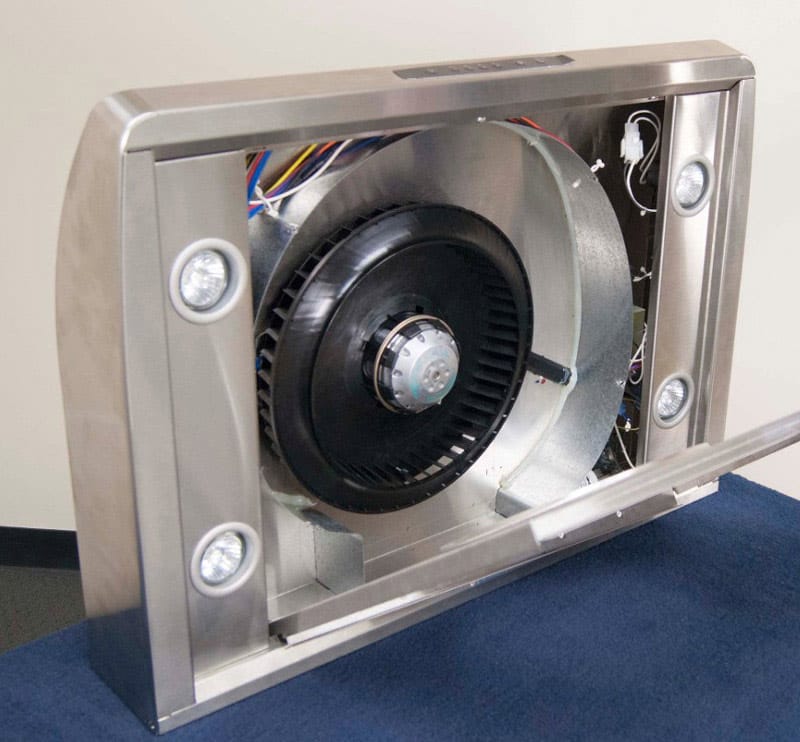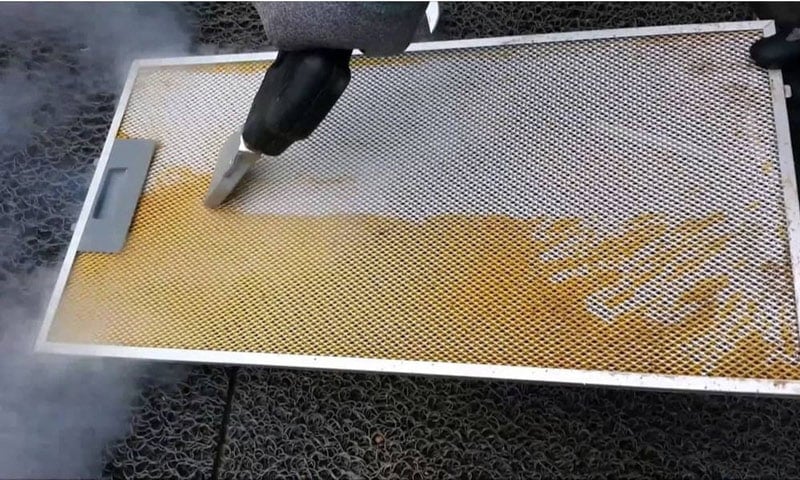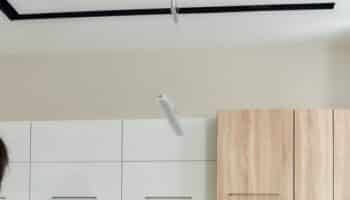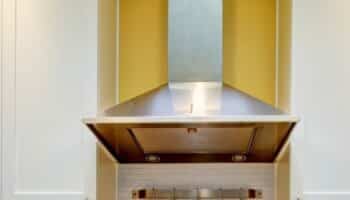Are you stuck with a loud range hood? Definitely not! Here are 4 ways to help.
A home is supposed to be filled with peace and quiet, so what happens when that’s interrupted by a loud range hood? Is there really anything you can do about it? For sure.
Yes, it’s true, range hoods are loud by nature. Pulling in all the air full of unhealthy chemicals and smoke from your kitchen is no easy task, which means that a lot of power is required to do so.
If you’re expecting to find a way to make your range hood quieter than a mosquito, I’m sorry to tell you that such a solution has not yet been invented. That being said, there are many things that could be making the noise worse, and much louder.
Below, I’ve prepared a list containing all the known possible causes that could be acting against you and contributing to your range hood’s annoying loudness and the many options you have to address them and improve your situation.
Without further ado, let’s get you a quieter home!
Your Range Hood Could Be Excessively Loud Due To…
- Debris
- A loose fan
- Loose panels/filters
- Rattling screws
Since range hoods do not have a lot of moving parts, neither pinpointing the culprit nor fixing the issue should be difficult. There’s a good chance that you need nothing more than a screwdriver and proper maintenance to get back to normal.
#1 Look For Debris
Keep your range hood clear of debris
Your range hood pulls in all sorts of gunk and undesirable substances as it operates, and while your filter is there to prevent anything solid from going through, wear and tear could allow for the forming of debris.
Even if that’s not the case, this element could come from the inside. If your fan blades are broken or something came loose inside your range hood, it could be dancing around its chamber and creating unnecessarily high levels of noise.
Solution: Give your range hood a good cleaning.
Cut the power to your appliance and carefully remove the outer panels holding the grease filters in place. Once you’ve done that, take a look inside the main chamber and do your best to clean and remove any debris lying around.
#2 Check Your Fan
Your fan might be loose
If your range hood was recently serviced, there’s always the possibility that your technician left your fan blade a little loose. This is rare, but remember, we’re trying to cover all bases here.
If your fan is not tightened all the way, you’ll hear a very distinctive rattling noise that will change in frequency as you turn your range hood on and off. The faster the fan spins, the louder the noise gets. It’s essential that you address the issue as soon as possible, as leaving your fan in this condition could break it.

Solution: Cut the power to your appliance and remove the outer panels to access the fan. Once exposed, check that everything is tightly secured and that the fan itself is not damaged or wobbly.
If you find any issues with it, you can simply remove it and get a replacement either from your manufacturer, or your nearest hardware store.
If you want to get any replacement part – or see how much one would cost – click to enter your model number in the search bar below. Our partners at AppliancePartsPros stock almost every part with free guides on how to install them.

#3 Wobbly Panels
Secure your panels in place
This is probably the simplest fix on this list. If you’re stuck with a loud range hood and your fan is fine, the problem could come from the outer grease filter panels.
These can come loose for several reasons, being improper placement and warping, the most common. The latter is especially likely if your range hood is close to a window that lets a lot of heat come through during the summer. They’re made of plastic, which means that heat can bend them.
Solution: If your issue is just improper placement, try removing the panels and putting them back in place while making sure everything “clicks” as it should.
On the other hand, if your issue comes from warping or bending, you’ll have to replace your panels to correct the situation.
#4 Loose Screws
Loose screws cause rattling noises
Last, but not least, is the possibility of a loose screw. These can come undone or loose tightness as your range hood operates. It’s just one of those things that’s bound to happen over time.
Identifying this as the cause should be quite simple, as loose screws produce a very distinctive rattling noise when your range hood operates. The problem here, is that these appliances have A LOT of them, so finding the culprit(s) can take some time.
Be patient and get a cross screwdriver, it’s go time!
Solution: Look for the screw responsible for the noise and tighten it.
There’s a chance that the culprit is not loose, but broken. In that case, you’ll have to make a trip to the hardware store and try to find another one of the same shape and size.
It would be a good idea to buy several more, just in case.
Tips to Make Your Range Hood Quieter
As stated above, there’s just no way to make your range hood completely silent, but fixing the issues above will definitely reduce the amount of noise coming from it.
And since I really want to help you get back to a peaceful home, here are some more tips to make your appliance even quieter.
#1 Operate It on Lower Settings
Lower settings mean less noise
I know sometimes this is not possible, but do you really need to have it set to the maximum settings whilst boiling potatoes?
Operating your range hood on lower settings won’t only improve the noise situation, but also reduce the cost of your electricity bill, as it requires much less power to function in this condition.
#2 Keep Your Grease Filters Clean
Replace your grease filters regularly
It might not seem like it, but your range hood has a much harder time pulling in air if your grease filters are dirty, or even completely obstructed by gunk.

More effort translates not only into more noise, as the fan has to work faster, but also into a smokey kitchen, and exposure to harmful chemicals. Making sure to keep your grease filters clean will guarantee the optimal functioning of your appliance.
It is recommended to change your range hood’s grease filters every one to three months.
If you want to get any replacement part – or see how much one would cost – click to enter your model number in the search bar below. Our partners at AppliancePartsPros stock almost every part with free guides on how to install them.

#3 Install a Wider Air Duct
A wider duct is quieter
I know this probably sounds a bit too drastic, but it’s just a potential solution I want to put out there in case you’re sick and tired of the disturbance.
By installing a wider air duct, the air your range hood pulls in will flow through it much more effortlessly, resulting in a quieter operation. Again, I know this is not ideal, as it will require contractors, technicians, and a lot of money. It’s just an idea!
Conclusion
Range hoods are loud, there’s no denying or fixing that. The minute a dead-silent model hits the market, we’ll be the first ones to tell you, but until that day comes, there are many things you can do to reduce the noise level of the one you already own.
Remember, just like any other household appliance, a range hood needs constant maintenance and regular checkups to guarantee its optimal functioning. Failing to do this will most definitely result in unwanted noises.
Loose screws, wobbly panels and unbalanced fans are usually the most common culprits behind the excessive noise coming from your appliance, and while fixing them might take some time, doing so is mostly easy, and free.
That being said, if you ever feel overwhelmed or encounter a problem with your range hood that seems too complex to address yourself, do not hesitate to call a technician you trust. I commend you for wanting to learn, but it’s vital that you always do so with safety as a top priority.
Thank you so much for sticking with me all the way to the end. If you learned something valuable today and managed to resolve your issue, why stop here? There are many more resources available below that you can check out.
Enjoy the silence!






